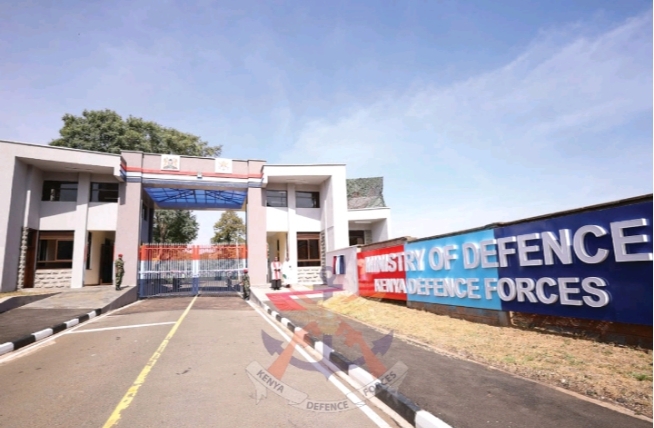Murang’a-based Amica Sacco has recorded a 13 per cent growth despite the prolonged drought that devastated the agriculture sector, leaving many food insecure.
The Sacco which was formed in 1997 to serve both tea and coffee farmers has for the first time had its revenue hit Sh1 billion.
During an annual general meeting, CEO James Mbui said the growth was partly driven by member deposits, good coffee prices and Small-Medium Enterprises (SMEs).
In 2021, the firm's revenue stood at Sh980 million, an increase from the Sh773 million it raised in 2020.
Its total assets also grew from Sh4.5 billion in 2020 to Sh5.6 billion in 2021, elevating the Sacco to tier-one status that is enjoyed by saccos with assets totaling more than Sh5 billion.
Mbui said the Sacco with over 130,000 members is experiencing an increased rate of loans defaulters owing to drought, the rising inflation and high cost of living.
“Last year, we saw many of our members experience crop failure for their food crops and production went down. We are asking those who are struggling with loans to visit our offices so we can have them rescheduled,” he said.
With the weather-man forecasting insufficient rains that could further affect farmers, Mbui announced that the sacco will put more focus on SMEs this year as the national government puts more attention on the sector.
He said once the national government actualises its plan to release the tranche of the Hustlers’ Fund meant for groups and corporates, it will empower a large group of Kenyans who are responsible for driving the economy.
The group, he noted, borrows between Sh20,000 and Sh200,000 and invests in the Jua Kali and SME sectors, and empowering them will have a major impact on the economy.
“Real hustlers are people working in the farming, SMEs and Jua Kali sectors and supporting them will go a long way in improving their livelihoods," Mbui said.
Mbui also lauded the county government for implementing programmes aimed at boosting agricultural activities in the county.
Two weeks ago, the county became the first to adopt agroecology development activities that will facilitate organic farming and help residents benefit from the export market.
The county has also organised mango farmers into a co-operative and helped them to access buyers to cushion them from exploitative prices from brokers.
This season, Mbui said more than 2,000 mango farmers have been paid through Amica Sacco, expressing confidence that more will benefit from the programme next season.
“The county assembly has also approved a subsidy for the dairy sector. All these programmes will cushion our sacco from the economic slump,” he said.
Mbui added that the financial sector has been hard hit by the fall of the Kenyan shilling against the dollar as it has further slowed business activities.
The firm which has 17 branches has for the last four years invested heavily in digitising its services to minimise the number of clients visiting its banking halls.
The CEO said more than 65 per cent of its transactions are now being conducted digitally with the majority of the rest seeking specialised services.
County Executive for Trade Paul Mugo praised the Sacco for providing employment to residents and helping cultivate a saving culture as it mobilises savings.
He added that a majority of Murang’a residents depend on agriculture and that the county government is focusing on subsiding several sub-sectors through co-operatives to ensure they are cushioned from poor prices.
He cited mango farmers whom he said have been selling their fruits at Sh5 per kg and are now able to sell them at Sh16 through a subsidy programme.
“We consolidated them in a Sacco known as Lower Murang’a Farmers Co-operative Society and connected them to processing companies. We help to transport the fruits to the buyers and our farmers are paid," Mugo said.
Mugo said similar efforts are being made in the avocado sector with farmers being connected to buyers through a cooperative society.
(Edited by Tabnacha O)






![[PHOTOS] Council of Governors visits Raila's grave](/_next/image?url=https%3A%2F%2Fcdn.radioafrica.digital%2Fimage%2F2025%2F10%2F59c8111a-6f0d-4719-8587-7e965c4bdd34.jpg&w=3840&q=100)





